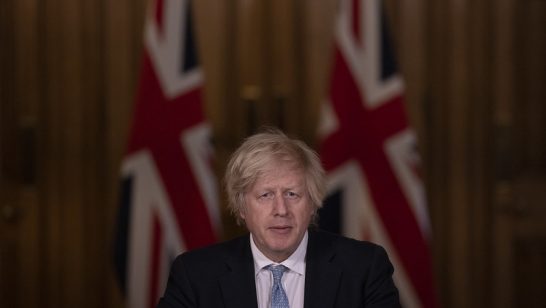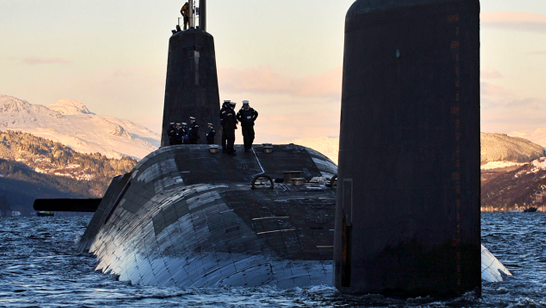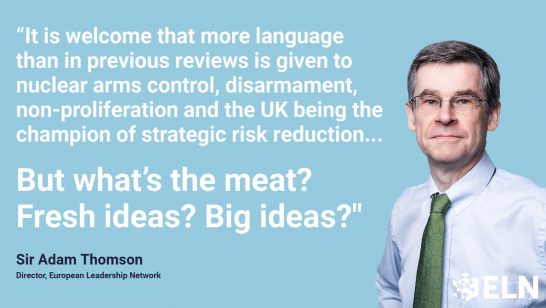
Last week, the UK Government published its long-awaited Integrated Review of Security, Defence, Development and Foreign Policy, titled ‘Global Britain in a competitive age’. The review has been described as the “most radical reassessment” of the UK’s place in the world since the end of the Cold War as it is the first review that looks at all aspects of British international policy, from defence to diplomacy to development.
The Integrated Review mentions working with Europe, but it was a missed opportunity to respond to one of the biggest changes in UK foreign policy, the impact of the UK’s departure on EU-UK foreign and security cooperation. The review is seen as the UK’s post-Brexit foreign policy vision, and therefore it is an attempt to look beyond one of its nearest neighbours. But at a time when great power rivalry and increased threats face the Euro-Atlantic region, the Brussels shaped hole in the review risks weakening European security and undermining the UK’s long-term strategic interests.
The Integrated Review describes the UK as a “European country with global interests” but its main references to the European Union were framed around a departure that allows for British agility, independence and opportunity to follow a different political and economic path.
The review does offer a few olive branches to the EU by making clear its commitment to European security and its willingness to work on shared challenges such as climate change. It also acknowledges the EU’s role in promoting peace and prosperity in Europe. These may be small offerings, but they were never guaranteed in the highly charged domestic political environment in Westminster.
But the absence of structured or informal cooperation with the European Union was the missing piece of the Integrated puzzle, with only one reference to EU-UK security cooperation in the 114-page document. Instead, the strong message being delivered is that the UK will prioritise engagement with EU member states, especially France and Germany, or groups of countries, whilst supporting closer EU-NATO cooperation. But not directly with the EU.
The absence of structured or informal cooperation with the European Union was the missing piece of the Integrated puzzle, with only one reference to EU-UK security cooperation in the 114-page document. Denisa Delic
This in itself is not a surprise following the UK’s antagonistic departure from the EU and its fractured relationship with the bloc. However, the Integrated Review’s ambitions hinge on its need to establish strong partnerships and work through them to deliver its priorities. If it seeks to be a Transatlantic anchor between Europe and the US, and get the most out of its Indo-Pacific tilt as the European partner in the region, both of these visions will require stronger collaboration with not only a select group of member states, but the rest of the EU. This is what makes the exclusion of the bloc in the paper particularly exposing.
This ostracism matters for UK strategic interests and broader European security that underpin them for three reasons.
Firstly, a strong EU-UK relationship on security and foreign policy would strengthen multilateral engagement and alliances such as NATO, who are working towards reviewing their own strategic direction and move towards more effective alignment between members. Ultimately, the way the UK decides to treat its EU neighbour will have an impact on how European NATO allies perceive it. The lack of engagement in one area has the potential to spill over into others, including in the NATO alliance context.
In addition, a decline in cooperation between the EU and UK in areas such as intelligence sharing and broader lack of coalition-building in Europe also risks creating ‘a degree of wariness’ amongst partners like the US. President Biden and his new administration have made strengthening multilateralism globally and a strong relationship with the EU key parts of their foreign policy. Strengthening the EU-UK cooperation would therefore be essential to ensuring stronger relations with some of the UK’s closest partners and alliances.
Secondly, the European Union is increasingly aware of its vulnerabilities in a global environment with increased geopolitical competition. From an aggressive Russia on its doorstep to a dominating China in other spheres, all of these challenges affect Britain too. This was indicated in the Integrated Review which describes the former as the ‘most acute direct threat to the UK’ and the latter as a ‘systematic competitor.’ These challenges cannot be dealt with in isolation – and this is where closer UK and EU cooperation would strengthen respective positions, as well as that of the United States. It would also enhance NATO’s efforts in this area, an alliance that the Integrated Review, as well as the Prime Minister and Foreign Secretary, have indicated a steadfast commitment to.
Finally, stronger cooperation on foreign and security agendas directly benefits the UK by amplifying its own initiatives in the same area. Take sanctions as an example. The UK government has noted that post-Brexit, it can impose sanctions more quickly and with fewer bureaucratic hurdles, and it has proudly championed its new Global Human Rights Sanctions Regulations 2020, also known as the Magnitsky Act, which has already announced sanctions on individuals in Russia, Zimbabwe, military generals in Myanmar and the President of Belarus. However, whilst the UK may no longer be required to coordinate policy with 27 other states, sanctions imposed by bigger economies, such as the EU and US, have “much greater clout.” The UK may be more agile, but its policy in this area will be less effective unless it can find a way to coordinate with the EU in an environment where it will be far less able to set the agenda. A broad coalition of countries working together would also provide political and economic cover and provide greater legitimacy of action. A more structured form of cooperation with the EU would enable this.
The lack of EU-UK security cooperation also points to a much larger question that the Integrated Review has highlighted – what is the UK’s broader approach to its neighbourhood? There were sections that outlined the carefully balanced approach it will take towards China and its ambitions for the UK’s Indo-Pacific tilt, but how it intends to move forward with one of its biggest and closest neighbours remains unclear. Yet this will be crucial for policymakers working on European security and foreign policy across the UK and EU.
With the toxicity surrounding the EU-UK relationship continuing to play out over the Northern Ireland protocol, vaccines and the status of the EU Ambassador, the breakdown of trust and further disengagement is a genuine concern. The UK Government must rise above the domestic political wranglings and establish a clear Europe strategy that has security and foreign policy cooperation at its core. This should involve bilateral and alliance cooperation, but it should also include and set out a path that outlines how the UK will seek to collaborate with Brussels.
The Trade and Cooperation Agreement (TCA) contains provisions on climate change, cybersecurity, and human rights, so the UK and EU already have a base to build from. The TCA and the Integrated Review should therefore be treated as starting points from which to pursue further cooperation on establishing their future security and foreign relationship. The UK and its European neighbours need to use this moment to stand up to the global challenges that we face collectively and work together to build a safer and more prosperous tomorrow.
The opinions articulated above represent the views of the author(s) and do not necessarily reflect the position of the European Leadership Network or any of its members. The ELN’s aim is to encourage debates that will help develop Europe’s capacity to address the pressing foreign, defence, and security policy challenges of our time.
Image: Unsplash, Rocco Dipoppa



